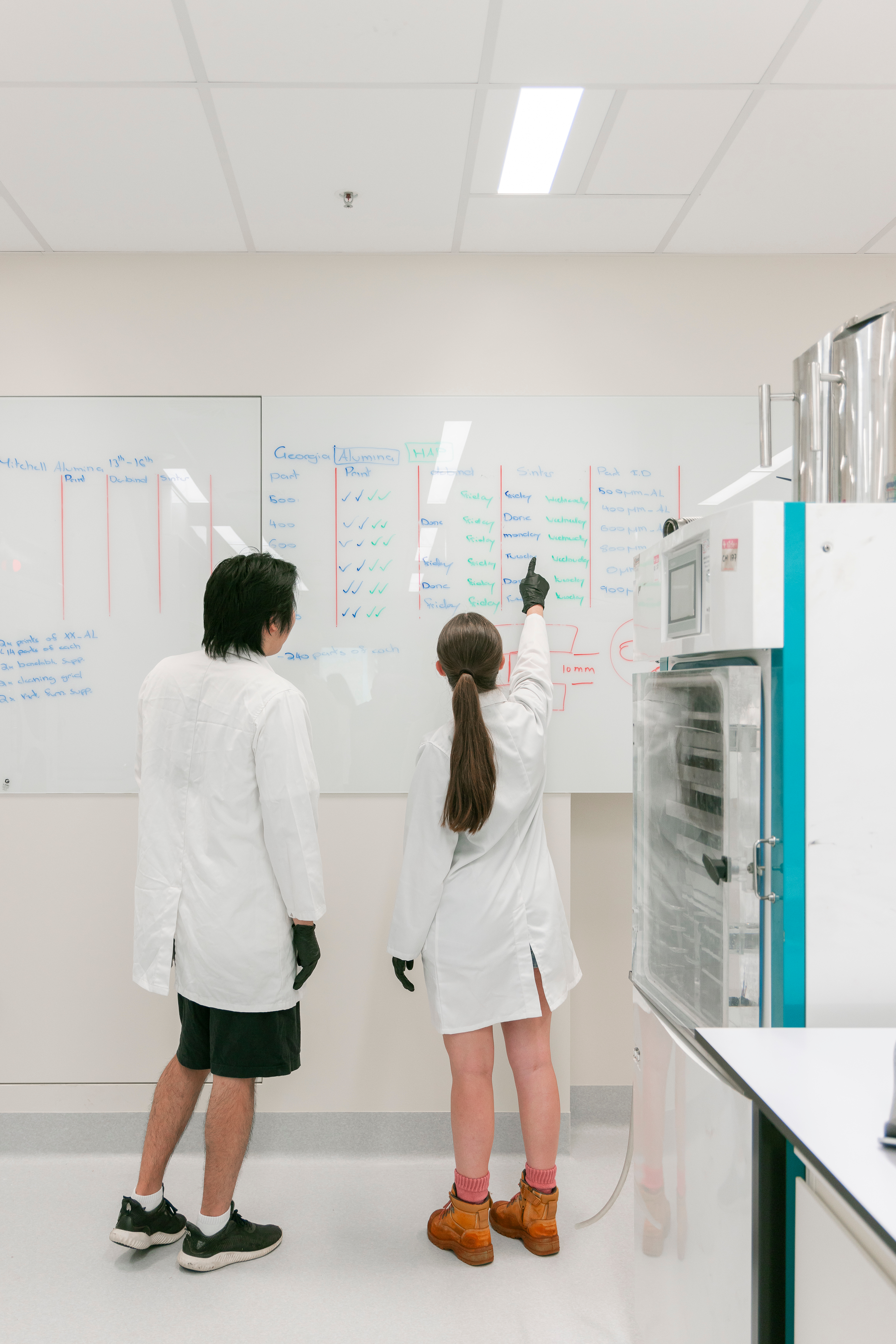PhD@Work
Candidates will build a portfolio of advanced and highly relevant research that delivers meaningful outcomes and impactful solutions to business and industry challenges while developing cutting-edge skills in problem solving, critical thinking, research design, data analysis, and communication.
The Candidate
Employees and Professionals can benefit from the PhD in Practice Program by developing advanced research and analytical skills while addressing relevant challenges in their industry.
The Partners
The PhD in Practice Program will integrate JCU research training and domain expertise to benefit a range of businesses and industries, for example:
- Start-ups
- Conservation and Sustainability
- Education
- Health and Medical Services
- Advanced Manufacturing
- MedTech
- Computer and Electrical Systems
- Government and Not for Profits
- Banking and Finance
- SMEs
- Indigenous Community Organisations
- Natural Resource Management
- Logistics and Transport
- Construction and Mining

Candidates will work with both Academic and Industry advisors to produce a portfolio of research activities that result in tangible outputs that directly benefit their employer. In addition, Candidates will participate in JCU’s state-of-the-art researcher development program where they will enhance their capabilities in research & innovation, solving complex problems, project management, data & information management, written & oral communication, statistics, and critical thinking.
Continuous innovation is the key to success, helping organisations and professionals develop capabilities through research.
- Address pressing challenges in your business for improved productivity and impact
- Retain your talent with an improved employee value proposition
- Elevate your business with improved products, processes, and services
- Access specialised research expertise and infrastructure at JCU
- Upskill and advance your career with high-level research and problem-solving skills
- Directly impact your company’s success
- Find solutions to real commercial challenges
- Build a portfolio of research activities, rather than a thesis or coursework
- Maintain your full-time employment by integrating your research into your regular work
The PhD in Practice Program is open to any applicant who:
- Can demonstrate capacity and capability to undertake the research through a combination of:
- Relevant industry or work experience
- Academic qualifications
- A portfolio of published work
- Research or technical reports prepared for industry, government, or business
- Meet the English language requirements of the university
- The course is supported by the Commonwealth’s Research Training Program (RTP). Domestic students may receive a RTP Fees Offset Scholarship that covers the cost of tuition for up to 4 years full-time equivalent.
- It is expected candidates will maintain their employment and enroll on a full-time basis as their research work will be tightly integrated with their employment activities.
Frequently Asked Questions
Our frequently asked questions are designed to help you, or you can contact us at phdwork@jcu.edu.au.
PhD@Work is a pilot program, so it’s currently offered on a limited basis. We’re co-developing the program with our candidates, industry partners, and advisors, and actively learning from the process. To date, we’ve received over 30 expressions of interest. We’re now finalising registrations so the GRS Admin team can complete due diligence checks and issue Letters of Offer.
Yes. Candidates referred via traditional pathways—such as those already working in industry or government—are still welcome. This aligns with the concurrent pathway model we’re also developing in partnership with JCUB’s Industry Engagement team.
Yes, rolling admissions may be introduced in the future, pending insights from the pilot. We are currently engaging both domestic and international candidates and will ensure all pathways align with TEQSA and AQF Level 10 requirements. We’ll keep stakeholders updated as the model evolves.
Yes, we can still onboard additional candidates, particularly those referred through targeted pathways such as QDAF. We already have 30+ EOIs, and as we continue to learn from the pilot, we plan to scale and introduce concurrent pathways.
To ensure a meaningful pilot, we’re intentionally selecting a diverse mix of candidates—across industries, geographies, and organisational types. This approach allows us to evaluate a range of use cases before expanding.
Candidates will develop a portfolio of work, which may include publications, industry white papers, frameworks, policy documents, prototypes, MVPs, or business plans, depending on their project and industry context. This portfolio will demonstrate the research undertaken and outcomes achieved.
RPL within PhD@Work will be considered case-by-case as part of the registration and due diligence process.
Yes, international candidates are welcome to apply for PhD@Work. As part of the application process, a tuition sponsorship from the relevant College must be secured on a case by case basis. The Graduate Research School’s HDR Program Support team will assist with arranging this sponsorship during the application process and you will be notified with your offer of candidature if successful.
Domestic candidates will receive a Research Training Program (RTP) tuition fee offset, meaning their tuition is covered directly by the Australian Government. This is not a loan like HECS and does not need to be reported as income to the ATO.
PhD@Work candidates are not eligible for stipend scholarships, as they are employed full-time and receive a regular salary. However, they are still entitled to access minimum resources funding in line with JCU’s HDR Minimum Standard of Resources policy. Additionally, they may apply for competitive funding rounds for conference support and other academic activities.
Download the information sheet for a detailed overview of the differences.